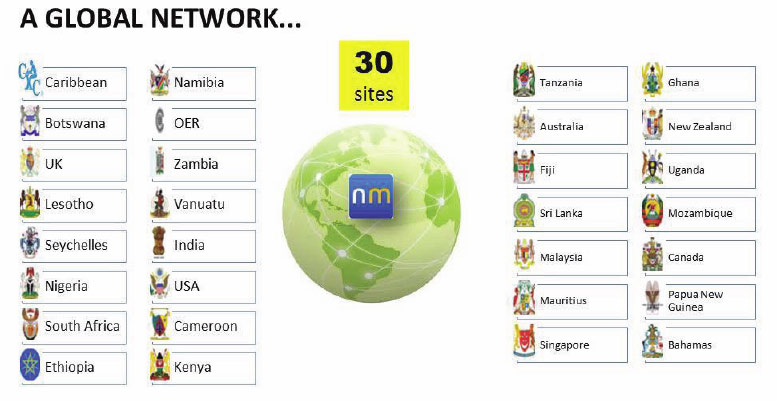ICT enabled Language Learning
The ICT enabled Language Learning Software pilot using Tell Me More software, was conducted from September 2013- July 2014, in Barbados, Belize, St Lucia and Trinidad and Tobago, with 467 students preparing for the CSEC French and Spanish examinations.
To build a sustainable model using information and communications technologies that will support the: (a) enhancement of students’ aural and oral capabilities in the Spanish and French CSEC Modern Languages and thus help them prepare for and achieve better results in these examinations; (b) transitioning of classrooms into blended learning and teaching environments was partially achieved. Teachers and students were trained in e-education strategies using the TMM language learning software and the insights gained have informed the development of a template for implementation.
A regional strategy for ICT-enabled language learning will be implemented during the 2015-2016 school year, across the CXC Participating Territories. Grant/outsourced funding will be pursued to assist the implementation of the strategy.

e-Learning
Notesmaster, the online portal, which offers free access to CSEC and CAPE educational material, has gone global, with the network providing access to 30 websites, including Notesmaster Caribbean, Notesmaster Namibia, Notesmaster Botswana, Notesmaster United Kingdom and Notesmaster United States of America.
The network is designed to allow schools, teachers, institutions and governments to realise their ICT goals without the heavy investment in software development, maintenance and support.
The Web Content Licensing Agreement signed between CXC and Notesmaster (NM) on 12th August 2011 has been extended to the 11th August 2015 to facilitate continued development of digital content specific to CXC examinations.
Retention and disposition schedules have been added to the file classification plan and the process for the length of time records are in temporary storage has been regularized. From the front end of this process ARMU has become more proactive in recalling records from key records creators.

Finance and Office Management
Process Review
The delivery of services with respect to office accommodation has become critical and the ways these services have been delivered continue to be reviewed. During the year there has been a review of the existing processes within the department in an effort to streamline activities. The documentation of existing processes and the updating of these processes is an exercise that will continue into the coming months.
Training has been done in several areas to ensure that staff is better equipped to deal with the changing requirements of the organisation.
Greater use of ICT tools to improve operational efficiency was also an area of focus including business intelligence tools and automation of existing manual processes. For the most part, payments are done on line for suppliers and resource persons. However, there is still some work to be done to ensure that the online banking facility is fully utilised.
The main areas of focus were as follows:
- Strengthen Financial Management and Infrastructure
- Collective Expense Management
- Review of Existing Processes, and
- Increased use of ICT tools
Quality
In 2014, focus continued to be on systematically extending the documenting of core procedures and policies in the Quality Assurance Unit, Finance and Office Management Division, Archives and Records Management Unit, and the Examinations Development and Production Division. The organizational documentation framework was mapped and more resources were committed to auditing key core and support processes in the Human Resource and Finance and Office Management Divisions. The focus of the audits was on conformance and process improvement. In relation to internal audits completed in 2012 and 2013, corrective and preventive actions were monitored for completion and effectiveness. Root cause analyses were also conducted and recommendations made as necessary for resolving emerging organizational challenges.
The thrust to encourage performance improvement, effectiveness and efficiency and appropriate levels of internal controls was extended by developing additional performance metrics for use across the various units of the organization. In some of these units, 2014 will be used as a baseline year for evaluating changes in performance as the Eastern Zone Office transitions to new headquarters, new subjects are electronically marked and an increasing number of virtual meetings are convened. The combination of new metrics, internal audits and extended policy and process documentation is intended to redound to enhanced customer satisfaction and improved organizational performance.
|
![]()
![]()
![]()




